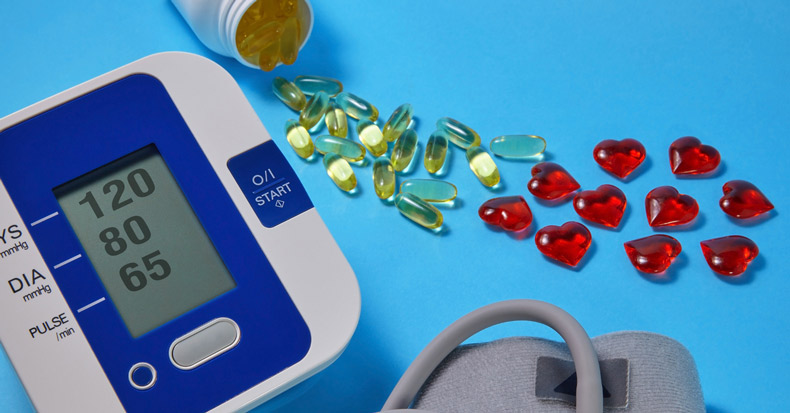Hypertension is a leading cause of cardiovascular disease and premature death worldwide. Lifestyle management is essential for reducing blood pressure, and strategies like eating a healthy diet (like Mediterranean); not smoking; curbing sodium, caffeine, and alcohol intake; exercising; managing stress; and losing weight have significant evidence support for such management. In conjunction with lifestyle management, researchers have also identified several vitamins and supplements that may benefit individuals with high blood pressure:
- Magnesium (Mg) helps by increasing the production of nitric oxide (which helps relax blood vessels). A literature review that included eleven randomized controlled trials found that 365-450 mg per day of Mg supplementation significantly lowers blood pressure in individuals with insulin resistance, prediabetes, or other non-communicable chronic diseases. In a large-scale study that included more than 200,000 people, researchers observed that for every 100-mg daily increase in dietary Mg, there is a 5% reduction in hypertension risk.
- Vitamin D supplementation can benefit hypertensive individuals as studies have identified an association between low vitamin D status and an elevated risk for high blood pressure. Current research suggests that maintaining healthy vitamin D levels may also be protective against hypertension.
- B vitamins such as riboflavin (vitamin B2) and folate (vitamin B9) may reduce blood pressure. Some studies suggest higher folate intake early in life may protect against hypertension later in life.
- Potassium (K) promotes urinary excretion of sodium and helps blood vessels relax. This mineral may also be the most published supplement for regulating blood pressure and reducing high blood pressure levels.
- Coenzyme Q10 (CoQ10) is a vitamin-like molecule that has been demonstrated to reduce systolic blood pressure (the first number in a reading).
- L-arginine is an amino acid (a protein building block) that has been observed to significantly improve blood vessel function and blood flow, as noted in an article that pooled findings from seven studies. This amino acid may also reduce diastolic blood pressure (the second number in a reading) in pregnant women with hypertension.
- Vitamin C is a water-soluble nutrient. A systematic review of eight studies found that an intake of 300-1000mg/day may reduce blood pressure. Researchers have also observed that people with low blood levels of vitamin C have a higher risk of hypertension than those with optimal blood levels.
Studies have also found other foods, vitamins, minerals, herbs, and supplements like beetroot, garlic, fish oil, probiotics, melatonin, green tea, ginger, basil, cinnamon, cardamom, flax seed, garlic, ginger, hawthorn, celery seed, French lavender, and Cat’s claw may have a role in blood pressure management. However, before supplementing your diet with any of these items with reducing blood pressure as a goal, consult with your healthcare provider as they may be able to inform you about which may provide the best benefit to your unique case, as well as which to avoid if there is potential for interactions with any medications you’re currently taking.




